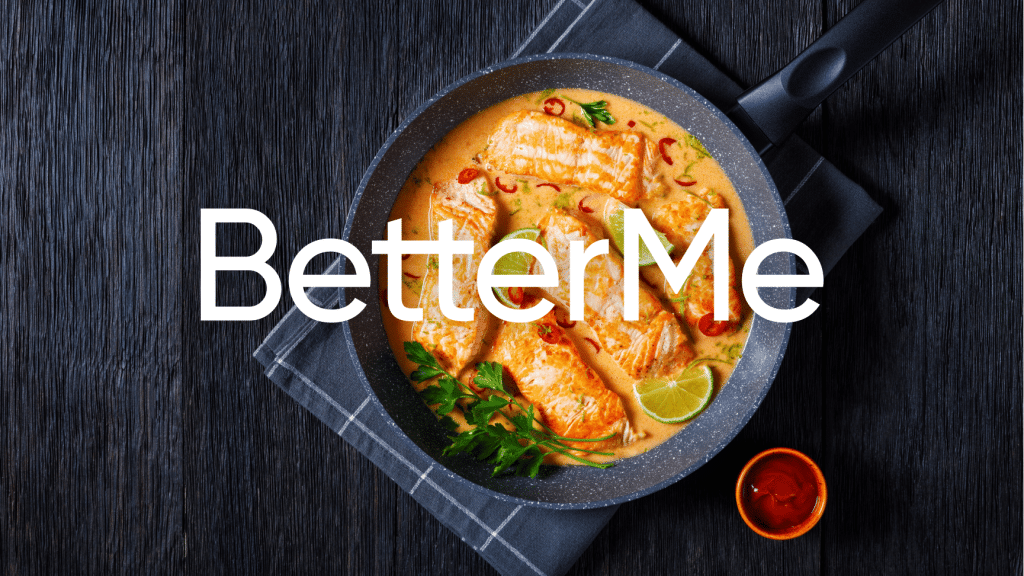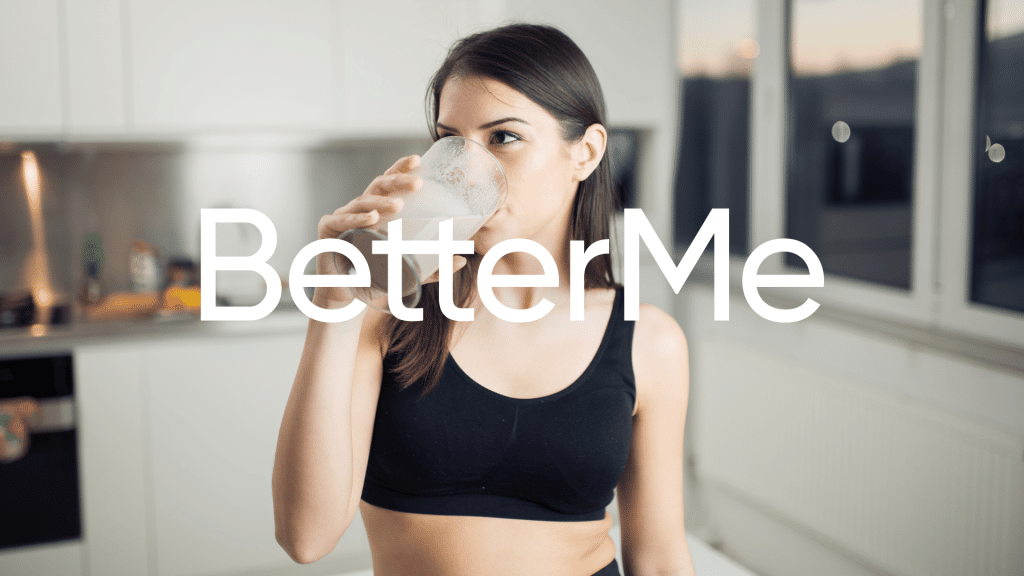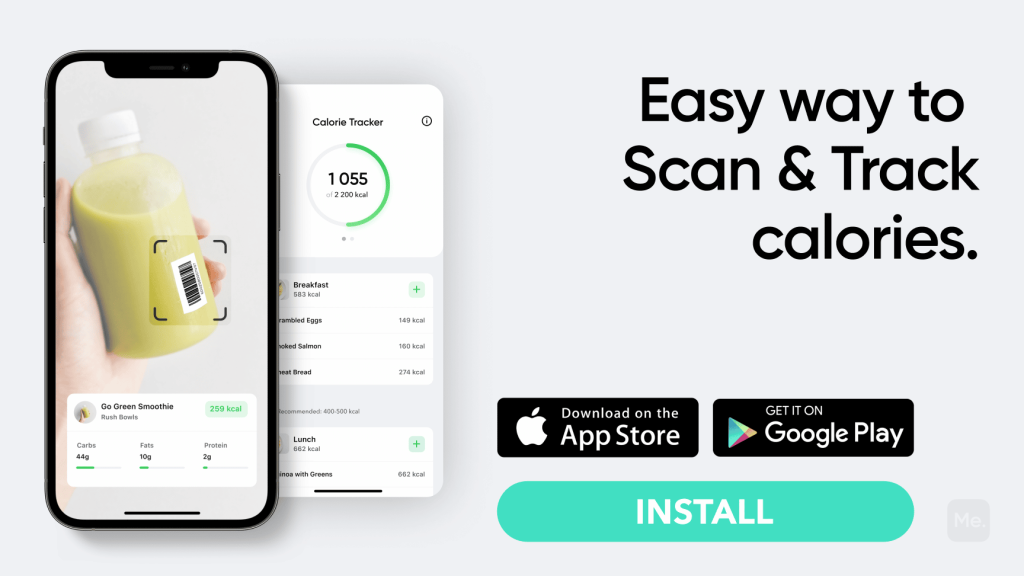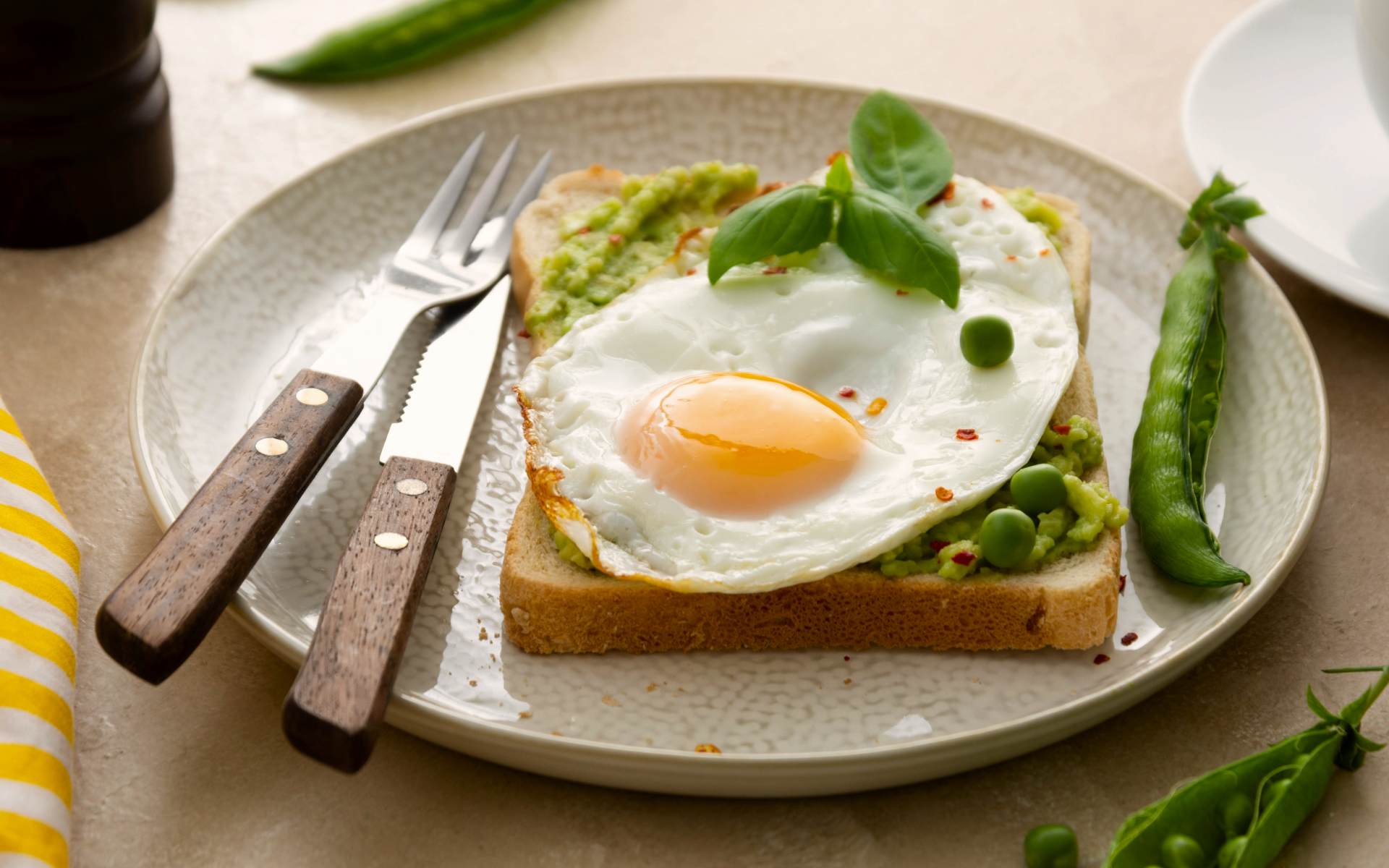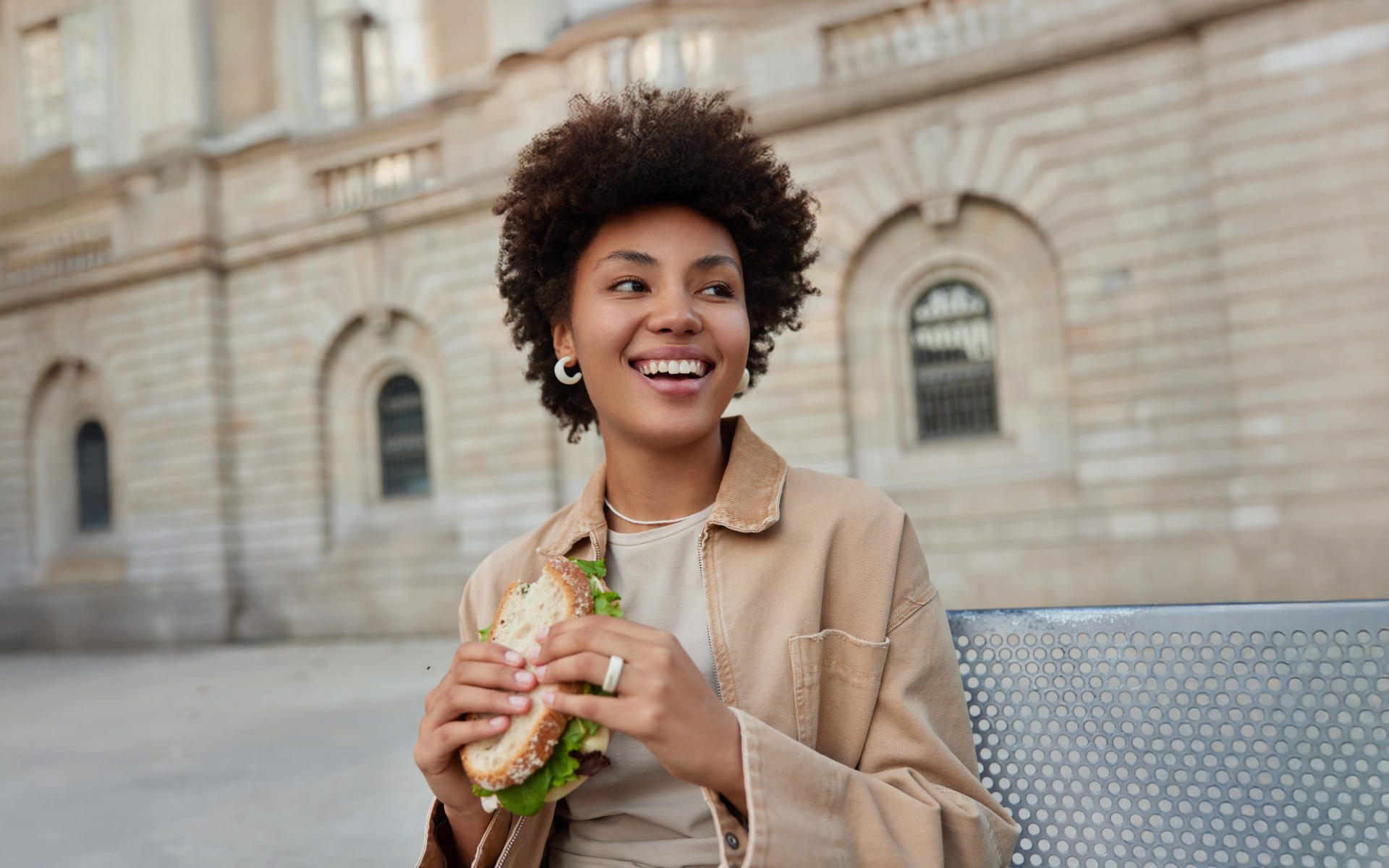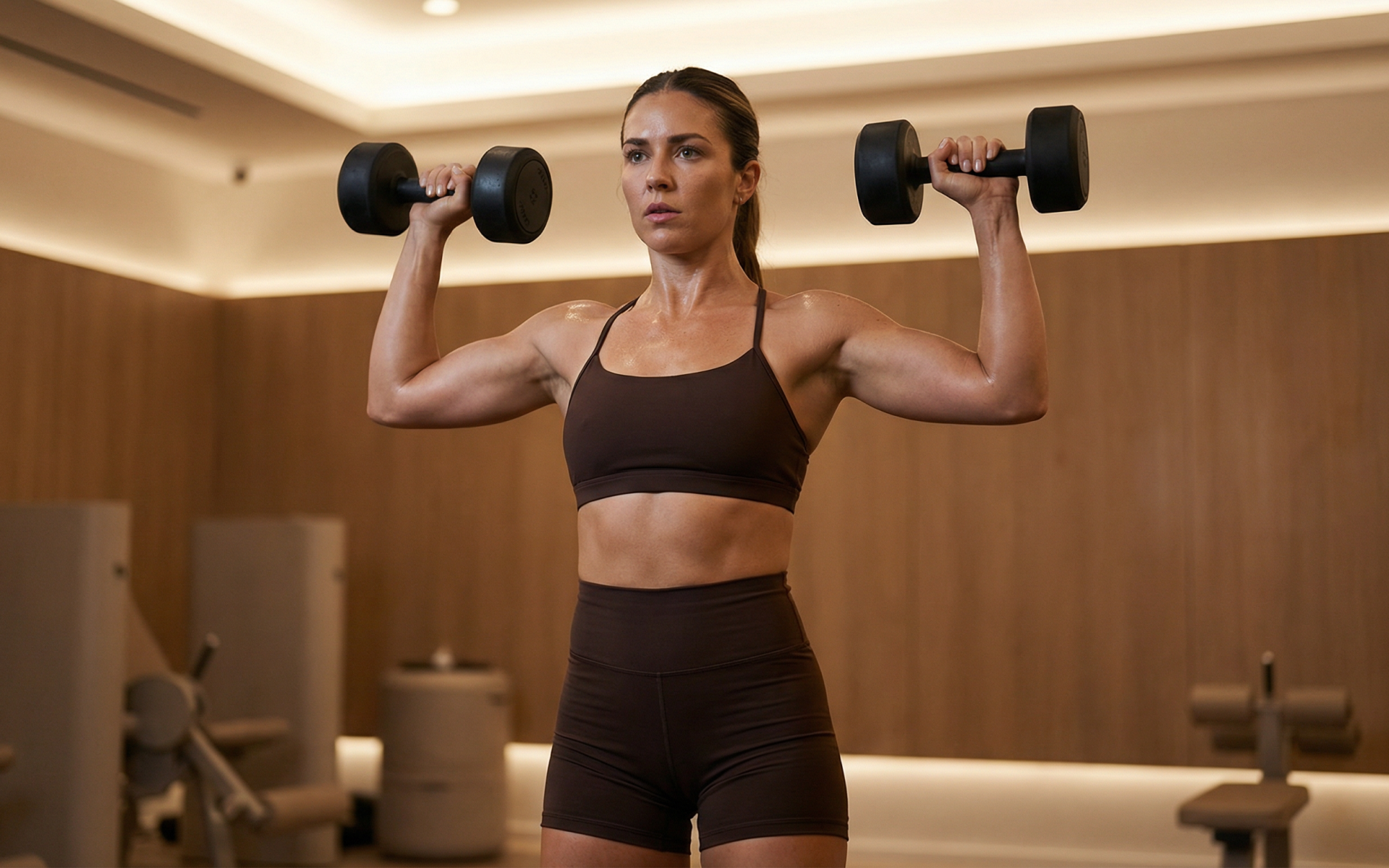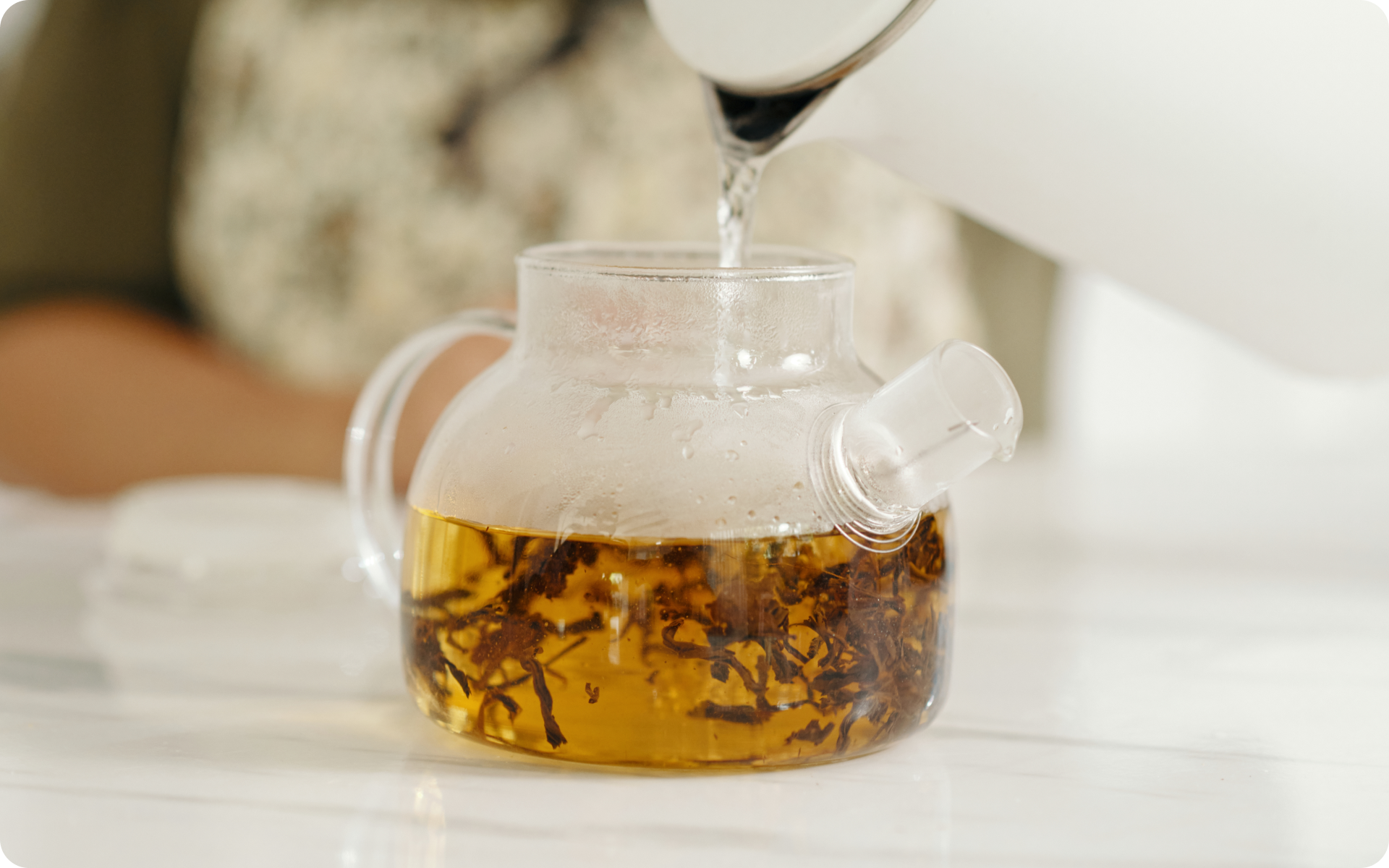Are you thinking of embarking on a High-Intensity Interval Training (HIIT) journey? First and foremost, a high five to you! HIIT is one of the most challenging yet rewarding workouts out there. Research shows that this type of exercise may help improve cardiovascular health, burn more calories, and reduce body fat (5). But before you take the plunge, know that a successful HIIT session requires more than sweat, perseverance, and a lucky pair of socks; it calls for proper nutrition. And here at BetterMe, we understand how daunting it can be to figure out what you should eat before a HIIT session. This guide will help you understand the importance of pre-workout nutrition and give you an idea of what to eat that’ll lead you to success. Be ready to say goodbye to your favorite cheat-day snacks and say hello to a diet that will propel you to HIIT superstardom!
Get your personalized
meal plan!
Should You Eat Before A HIIT Workout?
High-Intensity Interval Training, or HIIT, is a popular form of exercise that involves short bursts of intense exercise followed by periods of recovery (4). It can be performed in various ways, with exercises such as sprints, burpees, and jumping jacks.
It is different from other forms of exercise as it requires a lot of energy in a short period of time, which can be quite intensive on the body (4). When considering whether or not to eat before HIIT, it’s important to understand the energy demands of the workout.
HIIT requires a lot of energy in a short time, and therefore, it’s essential to have enough fuel to sustain the workout. Eating beforehand can provide the body with the necessary fuel to perform at optimal levels, preventing fatigue and exhaustion.
But these are not the only reasons to fuel up before you hit the gym as it can also help with:
1. Improved Performance And Endurance
Consuming carbohydrates before a HIIT workout provides the body with glucose, which is a primary energy source for the muscles (3). This energy allows individuals to perform at their best and push through to the end of the workout.
Additionally, consuming carbohydrates before a HIIT workout can help increase endurance, which is the body’s ability to maintain or sustain the intensity level of the workout (1).
2. Better Recovery
Eating before and/or after a HIIT workout can also aid in recovery, especially if the meal contains carbohydrates and protein (7). Carbohydrates help replenish glycogen stores, which is the body’s storage of glucose in the muscles and liver.
Protein, on the other hand, helps repair muscle tissue that has been damaged during the workout. Consuming a meal that contains both carbohydrates and protein can help speed up the recovery process and reduce the risk of soreness and fatigue (2).
Read More: 10 Plus Surprising Bay Leaf Benefits For Health And Wellness
3. Increased Fat Burning
While increased fat burning is said to be a benefit of exercising on an empty stomach, it is not exclusive to exercising in this fasted state.
Consuming carbohydrates before a HIIT workout can increase the body’s energy levels and, therefore, potentially allow for a longer and more intense exercise session. This can lead to an increased calorie burn during and even after the workout.
While it may delay the body’s use of fat as energy, it is still a helpful tool in burning calories and achieving weight loss goals.
How Early Should I Eat Before HIIT?
The timing of meals before a workout is especially important as it can impact energy levels, endurance, and overall performance.
For best results, it’s recommended to eat a meal containing carbohydrates and protein at least an hour or two before a HIIT workout.
In general, the body takes between 1 and 4 hours to digest food, and eating within this timeframe can provide sufficient time for the body to process the nutrients and provide energy during exercise.
However, the ideal timeframe for eating before a HIIT workout may differ depending on various factors such as age, fitness level, medical history, and personal preference.
Individuals with slower digestion may need a larger gap of time between the meal and the workout.
Similarly, certain medical conditions may require adjustments in meal timing or type of meal. It’s important to listen to your body and pay attention to your digestive system when determining what works best for you.
What To Eat Before And After A HIIT Workout?
The International Sports Science Association (ISSA) recommends eating a combination of carbohydrates and protein before a HIIT workout (9). Eating carbohydrates can provide the body with an energy boost prior to exercising, as well as during and after the workout.
When it comes to post-workout nutrition, particularly following a HIIT session, refueling with a combination of carbohydrates and protein can help speed up recovery.
Eating protein after exercise helps repair damaged muscle tissues; while consuming carbohydrates helps replenish glycogen stores, which is the body’s storage of glucose.
The Association, which is made up of qualified exercise professionals, further suggests that pre and post-workout nutrition shouldn’t be restricted to meals alone.
Eating healthy snacks such as vegetables, fruit, nuts, and seeds throughout the day can provide energy and nutrients, which will help optimize performance during a HIIT workout.
Based on these expert recommendations, a curated list of meals and snacks that can be eaten before and after a HIIT workout has been made.
BetterMe app is a foolproof way to go from zero to a weight loss hero in a safe and sustainable way! What are you waiting for? Start transforming your body now!
What To Eat Before A HIIT Workout?
Depending on how much time you have, here are some pre-workout meal ideas:
If You Have Two Or More Hours To Spare
If you have two or more hours before your HIIT workout, it’s best to consume a balanced meal that contains carbohydrates and protein.
Here are some pre-workout meal ideas:
- Grilled chicken with roasted sweet potato and a side of mixed vegetables
- Quinoa bowl with black beans, avocado, and salsa
- Turkey sandwich with whole-grain bread, lettuce, tomato, and avocado
- Brown rice bowl with baked salmon, broccoli, and sesame seeds
- Whole-grain toast with almond butter and sliced banana
These meals contain complex carbohydrates that break down slowly, providing a steady stream of energy throughout the workout, and protein that promotes muscle recovery and repair.
If you prefer snacks instead of a full meal, here are some options you can munch on:
- Apple slices with almond or peanut butter
- Greek yogurt with fruit and granola
- Rice cake with cottage cheese or hummus
- Hard-boiled egg with a slice of whole-grain toast
- Trail mix with nuts and seeds
If You Have One Hour Or Less To Spare
If you have one hour or less before your HIIT workout, it’s best to consume a light snack that will be easily digestible and provide quick energy.
Here are some pre-workout snack ideas:
- Banana with a handful of almonds
- Apple slices with a tablespoon of peanut or almond butter
- Greek yogurt with mixed berries
- Whole-grain toast with a hard-boiled egg
- Unsalted rice cakes with a tablespoon of hummus
All of these snacks contain a combination of carbohydrates, protein, and healthy fats that will help provide a quick source of energy and promote muscle recovery. Remember to choose options that are easy to digest and avoid heavy meals to prevent digestive discomfort
If you’re consistently struggling to find enough time to eat before your HIIT workout, you can try to adjust your schedule to ensure that you have enough time to properly fuel your body. Ultimately, the goal is to adequately boost the body for optimal performance and maximize gains during the HIIT workout.
Read More: Star Anise Benefits You Didn’t Know About: Boost Your Immunity And More
If You Have Less Than 15 Minutes To Spare
If you find yourself with less than 15 minutes before the HIIT workout, it’s best to opt for a quick snack that will provide energy in a short amount of time.
Here are some pre-workout snack ideas:
- A small cup of yogurt or cottage cheese with berries
- A banana with a tablespoon of nut butter
- A handful of trail mix or roasted nuts
- A small portion of sports drinks (e.g., Gatorade)
These snacks contain some form of carbohydrates and will provide a quick source of energy during the HIIT workout. Keep in mind that these snacks should only be consumed if time is limited, as they won’t provide the same level of energy and muscle recovery as a full meal.
What To Eat After A HIIT Workout?
It’s important to consume something after a HIIT workout in order to replace the energy that was expended and promote muscle recovery.
Here are some post-workout meal ideas:
- Grilled chicken with roasted sweet potato and a side of mixed vegetables
- Quinoa bowl with grilled shrimp, avocado, and salsa
- Greek yogurt with granola and mixed berries
- Salad with grilled salmon, spinach, tomatoes, cucumbers, and avocado
- Brown rice bowl with roasted vegetables and tempeh
These meals contain complex carbohydrates that break down slowly, providing a steady stream of energy throughout the day, and protein to help with muscle repair and recovery.
If you prefer snacks instead of a full meal, here are some options you can munch on:
- Apple slices with nut butter
- Whole-grain toast with cottage cheese
- Protein smoothie with banana, almond butter, and chia seeds
- Hard-boiled egg with a slice of whole-grain toast
- Trail mix with nuts and seeds
All of these snacks contain a combination of carbohydrates, protein, and healthy fats that will help replenish energy stores and fuel your muscles for recovery.
Intense sweat sessions, working weight loss tips, lip-smacking recipes come in one package with the BetterMe app. And all of it is at your fingertips, start transforming your life now!
The Role Of Water In HIIT Workouts
Water is an essential element of any workout routine, and it’s especially important when it comes to HIIT workouts. During HIIT exercises, the body produces heat and sweat, which can lead to dehydration. Therefore, it’s necessary to drink plenty of water before, during, and after the HIIT workout.
In addition to keeping your body hydrated, drinking water can help improve performance and enhance recovery (6). Water helps regulate body temperature, transport nutrients, and oxygen to the muscles, and reduce fatigue (8).
Aim for 16-24 ounces of water before a HIIT workout and 8-12 ounces every 15 minutes during the workout. Drink 18-24 ounces of water or a low-sugar sports drink to help replenish electrolytes after a workout.
The Bottom Line
Eating before a HIIT workout can provide benefits such as increased energy levels, endurance, and fat-burning potential. It is important to listen to your body and adjust the timing of meals or snacks around the workout based on individual needs.
Eating a combination of carbohydrates and protein before and after a HIIT workout can help speed up the recovery process. Eating healthy snacks and drinking water throughout the day is also an important factor in optimizing performance during a HIIT session.
DISCLAIMER:
This article is intended for general informational purposes only and does not serve to address individual circumstances. It is not a substitute for professional advice or help and should not be relied on for making any kind of decision-making. Any action taken as a direct or indirect result of the information in this article is entirely at your own risk and is your sole responsibility.
BetterMe, its content staff, and its medical advisors accept no responsibility for inaccuracies, errors, misstatements, inconsistencies, or omissions and specifically disclaim any liability, loss or risk, personal, professional or otherwise, which may be incurred as a consequence, directly or indirectly, of the use and/or application of any content.
You should always seek the advice of your physician or other qualified health provider with any questions you may have regarding a medical condition or your specific situation. Never disregard professional medical advice or delay seeking it because of BetterMe content. If you suspect or think you may have a medical emergency, call your doctor.
SOURCES:
- A Step Towards Personalized Sports Nutrition: Carbohydrate Intake During Exercise (2014, link.springer.com)
- Effects of Protein Supplementation on Performance and Recovery in Resistance and Endurance Training (2018, frontiersin.org)
- Exercise and Regulation of Carbohydrate Metabolism (2015, ncbi.nlm.nih.gov)
- High-Intensity Functional Training (HIFT): Definition and Research Implications for Improved Fitness (2018, mdpi.com)
- High-Intensity Intermittent Exercise and Fat Loss (2010, hindawi.com)
- Hydration to Maximize Performance and Recovery: Knowledge, Attitudes, and Behaviors Among Collegiate Track and Field Throwers (2010, ncbi.nlm.nih.gov)
- Pre-Exercise Nutrition: The Role of Macronutrients, Modified Starches and Supplements on Metabolism and Endurance Performance (2014, mdpi.com)
- The Role of Water Homeostasis in Muscle Function and Frailty: A Review (2019, mdpi.com)
- What to Eat Before High Intensity Interval Training (2021, mdpi.com)

